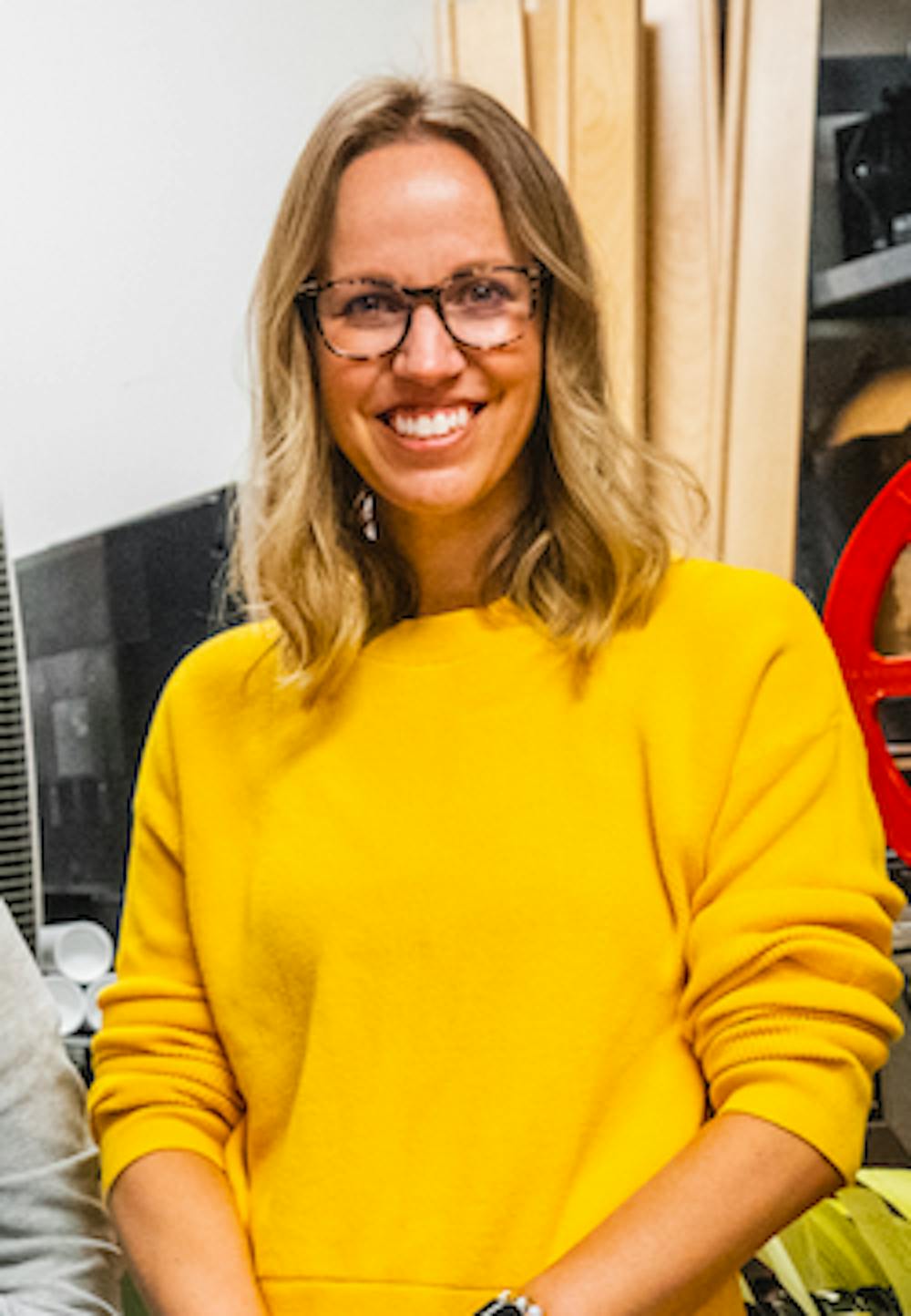Taking pride, bearing responsibility
Brittany Fremion talks about what it was like being a first-generation student
Growing up in a small farming community south of Fort Wayne, Indiana, Brittany Fremion went to college and became a first-generation student.
Fremion is in her 11th year on campus at Central Michigan University after joining in 2012 being a postdoc to a professor. Since 2021, she has been the co-advisor for Central Bridge, which is an RSO for and of first-generation college students.
Fremion received her bachelor's at the University of Saint Francis in Fort Wayne, Indiana. When she was first accepted, her family was excited and so was she.
“I certainly felt very excited and proud, if not a little uncertain and terrified,” Fremion said. “Being first generation, there is naturally a lot of pride being the first, but you also bear a lot of responsibilities.”
When Fremion decided to go to college, her aunt, who worked at the University of Saint Francis, helped introduce Fremion’s mother and herself to financial aid. Her aunt also introduced her to athletic coaches, and Fremion was able to receive significant federal aid and acquired athletic scholarships for cheerleading and tennis.
“I remember spending weekends, (in) my senior year of high school, (having) my girlfriends at the time, saying they can’t go out because 'I need to work on my application for Ball State or IU',” Fremion said. “Not really knowing what that meant but just knowing I should be doing that too.”
While doing her undergraduate at the University of Saint Francis, Fremion commuted. She was a 35-minute drive from her parents' house. She had home cooked meals, no bills and someone to help do laundry. When her senior year came, she ended up moving out.
“I feel like college for sure was a learning experience where I was very much sorting out who I am as an individual,” Fremion said.
After Fremion finished her bachelor's at the University of Saint Francis, her advisor, who was a historian, helped introduce her to the graduate school application process.
"During my undergrade experience, there was history professor who ended up being my academic advisor," Fremion said. "And then also mentored me through the grad application process and navigating graduate school.
“I will never forget going home and telling my mom that I signed a history major and that I wanted to go to grad school,” Fremion said. “And the sheer panic in her face.”
Fremion began working in her master's degree in policy history at the University of Bowling Green State University on a graduate assistantship. Fremion had another advisor and helped her through the master programs.
Being a student athlete, Fremion felt the responsibilities of keeping up with her work and having a designated study time at the library.
While going to the University of Bowling Green State University, she faced homesickness.
"Taking three classes that are worth nine credits was really intensive in graduate school." Fremion said. "Having to read a book a week, do book reviews and even reading a package of articles."
“To be away from home and a new place and not have people that I knew, that was a challenge, a really big challenge, I think I ended up driving home every weekend to be with my community,” Fremion said.
When she finished her master's degree, she went on to Purdue University and obtained her doctorate.
And when Fremion went on to do her doctorate, she had a couple of faculty members. And more faulty members to help with her desertion project and research.
“It was a good trajectory for me because coming into to college I definitely, as a first gen student, (I) didn’t not have the kinda cultural capital that my peers who had family go through higher ed that they had,” Fremion said.
Her mother was asking her what she will do with a history degree and telling her she will accumulate more debt while going to grad school. But Fremion remembers being strong and true to herself and acknowledging that this was the right investment for her future.
“(It's about) navigating that pressure but also honoring your own interest and goals,” Fremion said. “Finding the true balance there.”
In college, she was helped along the way by her peers in casual conversation of figuring out how to map classes, when and how to register for classes and how to manage her financial aid.
For current and future first generation students, Fremion advises to give yourself some grace and find space to celebrate the hard work you are doing; embrace your time in college; find your community and people if you are living away from home.
“Talk to your professors (and) don’t be afraid to ask questions no matter how seemingly simple or silly, I guarantee they are not,” Fremion said.







